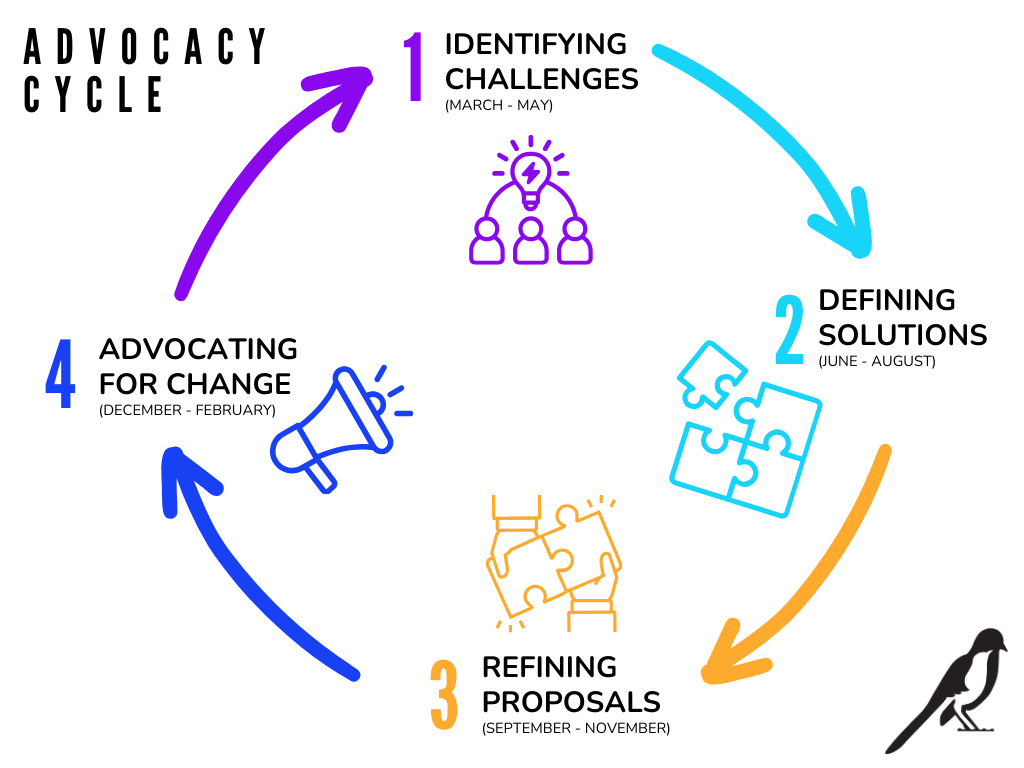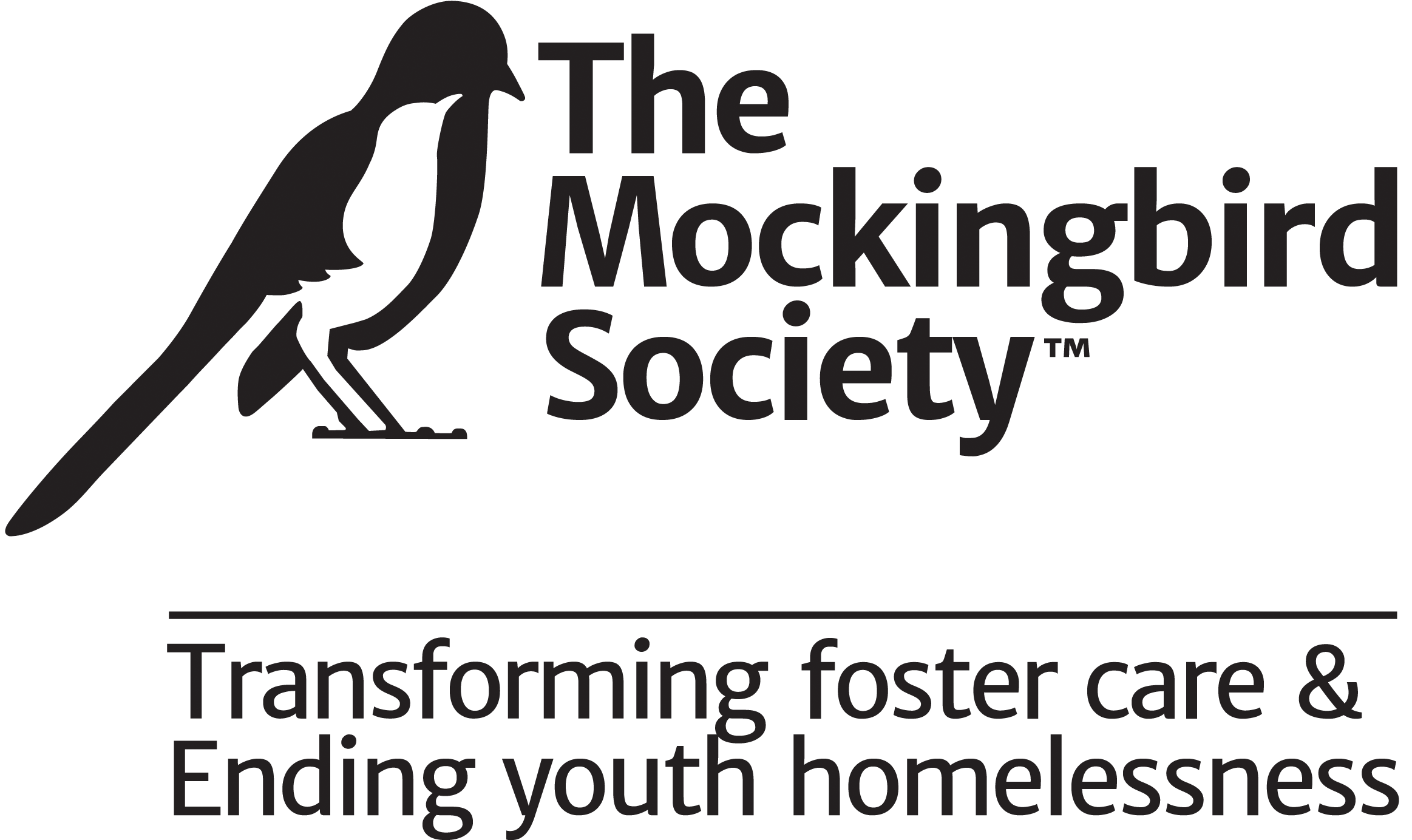Take Action
Advocate
Become an Advocate.
Change begins with you. Join hundreds of others who are passionate about transforming the child welfare system and ending youth homelessness through advocacy. Every winter, we host a Youth Advocacy Day in Olympia. Hundreds of young people, foster families, and allies gather at the Capitol to meet with policymakers and educate them on issues impacting youth experiencing foster care or homelessness.
If you can’t make Youth Advocacy Day, there are a number of opportunities to get involved by calling or emailing your representatives. Sign up for our Advocacy Alerts to stay updated on how you can support and center the advocacy work of young people!
Check out our Advocacy Resources below to learn more about what effective advocacy can look like.
If you are between the ages of 13-24, please check out our Youth Programs to become an advocate with one of our regional chapters!
Advocacy Resources
Learn more about Mockingbird's Advocacy Agenda
Mockingbird's Annual Advocacy Cycle

